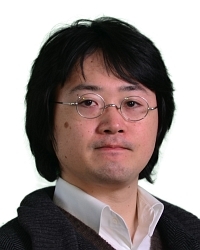Seminars
Wed |
New Trends of High-Throughput Forward Error Correction: Polar CodingDr. Toshiaki Koike-Akino, Mitsubishi Electric Research Laboratories, Cambridge, MA | |
|
Abstract: Capacity-achieving low-density parity-check (LDPC) codes have contributed to increasing throughput in modern optical communication systems. However, such forward error correction (FEC) relying on randomness in code construction does not perform well generally when the block length is short to reduce the decoding latency. Hence, how to design short LDPC codes has been one of challenging problems for decades. Because of the challenge of short-length LDPC design, the fifth-generation wireless standard has chosen an alternative FEC code based on polar codes besides for short-packet transmission. Among other FEC schemes such as turbo convolutional codes, turbo product codes, tail-biting convolutional codes, repeat-accumulate codes, staircase codes, braided codes, and BCH codes, the polar codes have recently drawn much attention to telecommunication researchers/engineers owing to its theoretical and practical strength. Here we introduce our research activities to improve the performance of polar codes suited for high-throughput optical communications.
We first take an overview of polar codes, and discuss how to improve the performance by jointly optimizing frozen bits and interleaving for high-order high-dimensional modulation formats. We also address constellation shaping for polar codes. For ultra-high-throughput polar decoding, we show that a turbo product polar code can realize massively parallel successive cancellation list (SCL) decoding, which had a difficultly of parallel decoding implementation in the past. Error floor analysis based on importance sampling will reveal a feasibility of post-FEC error rate below 1e-15, with a capability of 2560-times faster decoding throughput. Finally, we introduce a new family of irregular polar coding, which can reduce decoding latency, complexity, and error rates at the same time. We also refer some other recent works of polar codes exploiting deep learning to conclude the talk. Biography: Toshiaki Koike-Akino received the B.S. degree in electrical and electronics engineering, M.S. and Ph.D. degrees in communications and computer engineering from Kyoto University, Kyoto, Japan, in 2002, 2003, and 2005, respectively. During 2006–2010, he was a Postdoctoral Researcher with Harvard University, and since 2010, he has been with Mitsubishi Electric Research Laboratories, Cambridge, MA, USA. His research interests include digital signal processing for data communications and sensing. He received the IEEE GLOBECOM’08 Best Paper Award and the IEEE GLOBECOM’09 Best Paper Award. Location: MIT Lincoln Laboratory Forbes Road |
